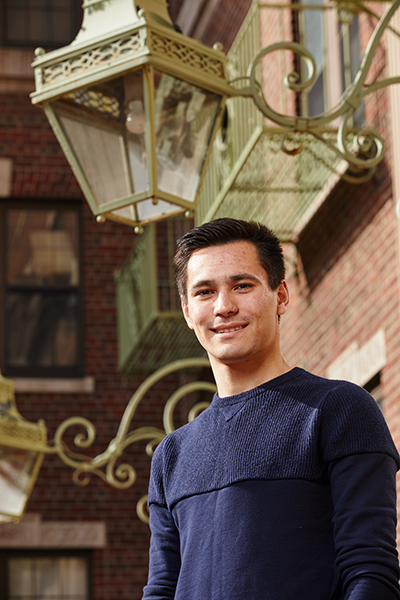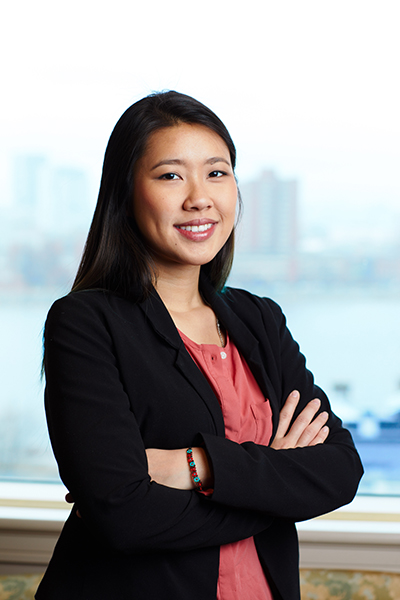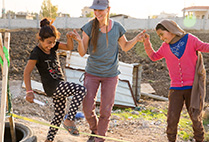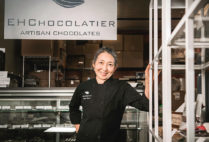Chance Jackson, a biomedical engineering major and a student in Kilachand Honors College, is one of the many BU undergraduates who have received scholarships from funds established by generous donors through the University’s innovative Century Challenge program. Those donors, says Jackson (ENG’19), who came to BU from a small town in Massachusetts, have done more than give him money. “They have given me the opportunity to study at one of the best research institutions in the world, and, this past summer, the opportunity to do stem cell research in Taiwan. I am sincerely grateful for what they have done for me.”
Making BU affordable for all qualified students—no matter their family’s economic circumstances—is a priority for the University. From its founding, inclusiveness has been one of BU’s core values. A diverse student body that reflects changing US demographics as well as globalization is one of BU’s strengths.

Chance Jackson (ENG’19) says his scholarship gave him the opportunity to do stem cell research in Taiwan last summer.
The University has made great progress expanding access to qualified students of all backgrounds. The Class of 2021 is the most diverse—both racially and socioeconomically—and the most academically accomplished in BU’s history. More than a third of the freshmen are minority students, a designation that includes students of African American, Hispanic, Native Alaskan, Native Hawaiian, and Asian descent. And out of almost 61,000 students who applied, only 25 percent received an offer of admission.
Kelly Walter (SED’81), associate vice president and dean of admissions, says that while underrepresented minority students and high-achieving low-income students have always applied to BU, many more have chosen to attend in recent years because of initiatives to offer competitive financial assistance and academic support.
Among the initiatives is the Century Challenge, a program that President Robert A. Brown introduced in 2012 through which BU matches donor dollars over time. The University has also made significant commitments to the financial aid budget.
Diletta Mittone’s parents moved to New York City from Argentina before she was born. Mittone knew she wanted to attend college in Boston, and applied to BU because of its strong academics and hands-on research opportunities. But she ultimately came here because the University gave her a larger financial aid package than another local university.
“I could not have come to BU without my scholarship,” says Mittone (CAS’17). “I am so incredibly grateful for it—not just because of the money but because BU gave me everything I wanted academically, socially, and career-wise.” A psychology major with minors in biology and public health, Mittone credits her coursework and her work in BU’s Brain and Early Experiences Laboratory with enabling her to succeed in her first job, in the University of Maryland’s Family Involvement Laboratory.

Carmen Zheng (Questrom’17) says that without scholarships, she would not have been able to transfer to Boston University from a community college near her hometown of Miami.
BU has spent more and more over time on undergraduate financial aid, including $216 million in fiscal year 2017. The investment has allowed the University to maximize grants and minimize loans in many aid packages, an approach that has helped make the undergraduate student body more diverse. For the Class of 2021, for example, BU was able to increase financial assistance to students receiving Pell Grants by providing financial aid awards that meet the students’ full financial need. In part because of BU’s investment—augmented by support from generous donors, including trustee Richard D. Cohen (CGS’67, Questrom’69)—about 18 percent of the current freshman class comes from low-income families, compared to 14.6 percent last year. That percentage places BU among the highest in its peer group.
Doubling a Gift’s Impact
Only about $10 million of the $216 million BU spent on financial aid during the last fiscal year is funded by gifts or income from the endowment. The Century Challenge—a cornerstone initiative of the Campaign for Boston University was designed to build permanent resources specifically for financial aid. And while scholarships benefit particular students, a larger endowment benefits everyone, because the University can rely less on tuition increases to meet operating costs, and also direct resources elsewhere, including faculty, facilities, and other areas of need.
The Century Challenge works like this: when a donor establishes an endowed scholarship fund of $100,000 or more, the University agrees to match, dollar for dollar, the income distributed from that fund for scholarship purposes for a period of 100 years following the fund’s activation. The University has committed to making this match for the first $100 million raised through the challenge.
Today, the endowment’s average distribution rate is 4 percent. So a fund of $100,000 will produce spendable income of $4,000. The financial aid office pays out most or all of that amount to a qualified student, and BU matches that payout every year for 100 years after the fund’s establishment, essentially doubling the good that is done in the donor’s name.
To date, 101 Century Challenge scholarship funds have been established during the campaign, totaling nearly $20 million. Donors include individuals, families, and foundations from all over the world.
BU Athletics has enjoyed particular success during the effort, with donors endowing nearly 50 scholarships to date.
C. A. Lance Piccolo (SED’62), Charles Lax (Questrom’82), Larry DePaulis (ENG’99) and Debi DePaulis (ENG’99), and Robert Moses (CAS’68) have led the effort by endowing more than one scholarship; some donors are former student-athletes, including Chris Matchett (CAS’86), who received a scholarship while a varsity ice hockey player and has now endowed a fund himself. Drew Marrochello, assistant vice president and director of athletics, says donors understand that scholarships for student-athletes help the recipients and their families as well as BU’s intercollegiate programs. “Endowed scholarships are vital as financial support for the University and the department of athletics,” he says. “We also have found that they create a unique relationship between the donor and student that connects them long after their playing days are over.”
Brown emphasizes that increasing financial aid resources must be a joint effort between BU and its alumni and friends. “We launched the Century Challenge because we need and want to work alongside our generous donors to make a BU education attainable for all of the accomplished young people we admit,” he says. “We are making great progress, but there is more to do before the campaign is done.”
The initiative has also led to the development of important relationships between donors and the students who benefit from their support.
Carmen Zheng is a beneficiary of a scholarship gift made by Molly McCombe (Questrom’87) and her husband, T. J. Callahan. Zheng (Questrom’17) transferred to BU from a local community college that was affordable and close to her hometown of Miami. She has built a friendship with McCombe, who has also offered her career advice and other types of counsel. “If I didn’t have scholarships, I wouldn’t have come here,” Zheng says. “The scholarships made it possible.”















































Related Stories
BU Trustee Richard Cohen’s Challenge Bolsters Need-Based Undergrad Financial Aid
Gift will match dollar for dollar all new or increased donations, up to $1 million
BU Expands Boston Community Service Award Program
Scholarships open to transfers who graduated from city’s public schools
Catapult Challenge: Ready, Aim, Release!
ENG students go head-to-head in Tinker Lab’s third annual competition
Post Your Comment